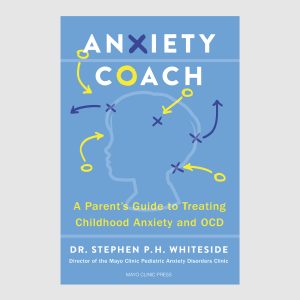
Mayo Clinic does not endorse companies or products. Advertising revenue supports our not-for-profit mission.
For some people, a chronic inflammatory demyelinating polyradiculoneuropathy (CIDP) diagnosis can bring a long, frustrating search for answers to their medical problems to an end.
CIDP is a rare autoimmune disorder that affects the protective covering of nerve fibers in the arms and legs, called myelin. As the immune system attacks myelin, underlying nerves become damaged. Then weakness, tingling and other symptoms set in, says Divyanshu Dubey, M.B.B.S., a neurologist specializing in CIDP treatment at Mayo Clinic. These symptoms can be severe and lead to problems with physical function and movement.
However, when treated with the latest infusion therapies early enough in the disease, the symptoms can go away. In a study, more than 90% of people who were properly treated for CIDP had a good recovery and were living independently 10 years later.
The following advice can help you get the most from your CIDP treatment plan.
Get a second opinion
Many conditions share similar symptoms with CIDP. “Patients will be sent to Mayo Clinic with a CIDP diagnosis, but we will later understand that they actually have something else,” says Dr. Dubey.
Many other neuropathies also lead to tingling, numbness and weakness in the extremities.
“They can look a lot like CIDP, but the treatment is completely different,” says Dr. Dubey.
If you are treated for CIDP but actually have a different condition, your treatment is unlikely to bring relief.
Just as important: There are many types of CIDP, and they don’t all respond to the same treatment. To successfully treat CIDP, your healthcare professional must determine your CIDP type. This often requires additional testing and the expertise of a healthcare professional specializing in CIDP treatment.
Read more: All about CIDP: What is it, and how is it treated?
If needed, undergo more testing
As mentioned earlier, to create an effective treatment plan, your healthcare professional must pinpoint your CIDP type and rule out non-CIDP neuropathies.
Depending on your symptoms, your healthcare professional may recommend testing your nerve function, performing bloodwork — and potentially performing a lumbar puncture — to help rule out other diseases. In some cases, an MRI or nerve biopsy also may be needed.
Read more: CIDP: New tests that help diagnose this rare condition
Don’t put off treatment
Delaying treatment gives your immune system more time to attack nerve tissue. Although the myelin sheath that protects and insulates your nerves will likely regrow and heal over time, the nerves inside will not. As a result, the longer the disease progresses, the lower your chances of full recovery.
“Time to treatment is so important,” says Dr. Dubey. “The earlier we can diagnose and treat CIDP, the bigger improvement we often see.”
Make physical activity a goal, with professional help
Immunotherapy will calm your immune system so that it stops attacking your nerves. After that, you’ll need therapy to retrain your nerves and rebuild your muscle strength.
“This is a critical part of recovery and healing,” says Dr. Dubey.
Retraining your nerves requires expertise. As a result, your healthcare professional will likely refer you to a physiatrist or physical therapist who specializes in helping patients with CIDP recover.
Stay healthy
A well-balanced diet — like the Mayo Clinic Diet — won’t reset your immune system. Nor will it help your nerves heal. However, by improving your overall health, you can reduce your risk of diabetes and other metabolic disorders, diseases that can damage nerve tissue and slow your healing.
For best results, gravitate toward minimally processed whole foods like fruits, vegetables, unprocessed meat, fish, legumes, beans, whole grains, nuts and seeds.
Practice self-care
Mild depression can reduce your motivation to get care and follow through on your treatment plan. Depression also can make it difficult to cope with pain. But research shows that treating mental health along with other health conditions can help you manage both.
If you have a history of mental health conditions, let your healthcare team know. Your care team may be able to recommend medication for anxiety or depression that can be combined with your other medications.
Your care team also might recommend a mental health professional, such as a social worker or therapist, who can help you with coping strategies. Your therapist can help you:
- Accept your diagnosis and determine what’s important to you so that you can make decisions about your care.
- Set up a support network of family and friends who can drive you to appointments and help with household tasks.
- Set realistic goals, so you can accomplish the tasks you need to with minimal frustration.
- Focus on your abilities rather than limitations.
- Concentrate on what brings you meaning and purpose.
Mayo Clinic does not endorse companies or products. Advertising revenue supports our not-for-profit mission.

Relevant reading
Future Care
A renowned cardiologist and Harvard professor spells out the future digital shift of medicine — and how it will impact the lives not only of patients and health care professionals but of all humans.


















